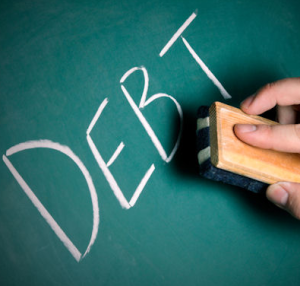Saving Grace: How to Come Back from the Brink of Bankruptcy
 It is not uncommon to feel as if bankruptcy is the only option for debt relief. The constant harassing calls from creditors, mounting debt, and low bank account balances are enough to put most anyone on edge. Most people begin to consider filing for bankruptcy after just a few months. Some file bankruptcy in order to benefit from a temporary protection known as an automatic stay. An automatic stay provides immediately relief from collection calls, foreclosures, and repossessions. The stay ensures that all assets are temporarily protected in order to prevent creditors from having a free-for-all. Despite this benefit, it may be wiser to consider other options to get out of debt. Being able to come back from the brink of bankruptcy is more than a preservation of pride and self-worth. It can be empowering and liberating.
It is not uncommon to feel as if bankruptcy is the only option for debt relief. The constant harassing calls from creditors, mounting debt, and low bank account balances are enough to put most anyone on edge. Most people begin to consider filing for bankruptcy after just a few months. Some file bankruptcy in order to benefit from a temporary protection known as an automatic stay. An automatic stay provides immediately relief from collection calls, foreclosures, and repossessions. The stay ensures that all assets are temporarily protected in order to prevent creditors from having a free-for-all. Despite this benefit, it may be wiser to consider other options to get out of debt. Being able to come back from the brink of bankruptcy is more than a preservation of pride and self-worth. It can be empowering and liberating.
Communicate With Creditors
Creditors are more than willing to negotiate payment terms, and will often settle for pennies on the dollar. It is a good idea to get all financial proposals in writing to ensure that there is evidence of payment available in the future. It is important to not hide from the phone calls, or ignore the creditor mailings. Call the creditor, find out what they need and make them an offer that you will be able to uphold. Often, mentioning that you are considering filing bankruptcy will entice the creditor to make more of an effort to work with you to resolve the debt.
Merchant Accounts
It can be difficult to procure the income necessary to evade bankruptcy. Often, having a traditional bank account, checking account, or even merchant account can be challenging to obtain or maintain due to poor credit and excessive debt to income ratio. Financial difficulties are not the rarity they used to be, and there are many reliable high risk merchant services available to help ensure the continuity of income for merchants. As financial challenges have become more challenging, the rates for a high risk merchant account have significantly decreased. Some of these merchant accounts have better rates than a more traditional merchant account.
Always Pay Yourself
Saving money is easier said than done, especially when the bills total more than the income. However, saving money is important in any situation, no matter how much or how little income is made. Saving money, even in small amounts will help ensure a financial cushion to be used when needed in the future. In the beginning, simply placing a small percentage of your income in a savings or investment account will help you to save money, even while paying off debt.
Reassess Budgets
Turning away from bankruptcy will require financial planning and spending changes in order to be successful in the long term. It is important to continually reassess budgets and spending habits in order to remain financially healthy. Willingness to review spending habits objectively and to make significant long term financial changes will help ensure that the thought of filing bankruptcy was a mere fleeting thought that will never be revisited again.
A bankruptcy will reflect on credit reports for a period of ten years. During this time, obtaining loans and other financial benefits may be difficult, if not impossible. Interest rates on any loans and credit cards will skyrocket, making the opportunity to get out of debt even more challenging. Some employers might even refuse to hire new employees with a bankruptcy on their record. Although unfair and sometimes illegal, the consequences of filing for bankruptcy can be unfair and long term. Coming back from the brink of bankruptcy is entirely possible with dedication, careful financial planning, and discipline. The benefits will last far longer than a bankruptcy ever would.
Category: Bankruptcy





